GT: What are your advantages in the election of the IOC presidency?
Wu: I have been serving the Olympic movement for over 25 years, which makes my tenure the longest among all the six candidates. My extensive experience in the IOC and AIBA will constitute my competitive advantages in this election.
Over nearly three decades, I have worked in nine IOC commissions, and spent much of the time committing myself to culture and education.
My efforts as AIBA president have been conspicuously productive. Before I assumed the presidency, boxing had been marginalized for a long time. After comprehensive reforms under my direction, AIBA has successfully swept this haze aside.
Extensive problems, such as financial non-transparency, match-fixing, and corruption, were all properly addressed.
More importantly, these reforms served as a precursor to the successful inclusion of women's boxing in the London 2012 Olympic Games. A transparent, influential and well-respected AIBA is back on track.
I have also established three Olympic museums in China.
These museums are designed to publicize the Olympic spirit, which I have been continuously dedicated to carrying forward with great passion in my Olympic career.
GT: What aspects of global sports development should the IOC further improve? And what's your plan to get this work done?
Wu: In the last 33 years, the late president Juan Antonio Samaranch and incumbent President Jacques Rogge have achieved great success in addressing the problems of global sports and improving the image of the IOC and the Olympic Games.
Despite the successes, we are still facing some problems jeopardizing the development of sports. Doping, illegal betting and match-fixing are still disturbing. I believe that education is key to resolving these problems.
Education plays a fundamental role in recovering the corrupted values. People should be convinced that moral principles instead of selfish interests will prevail. Equality, fair play, and devotion should be embedded in the minds of the people, especially the younger generation.
If I am elected, I will call for education ministers around the world to discuss how to integrate the values of the Olympics into school education and inspire the young generations with righteousness and fairness.
It should be kept in mind that the Olympic Games and other events must always be a high-level and honest stage for athletes to compete.
GT: Can you expatiate about your philosophy in leading the IOC if you are elected?
Wu: I think it is time that the IOC and the Olympic movement as a whole go beyond Olympism and play a proactive and leading role for the betterment of humanity.
Sport is currently the most effective approach to bring together people of the world, and the IOC, on behalf of the universal values of the Olympics, can make massive contribution to the public interests, such as promoting world peace and education and tackling the problem of poverty.
 |
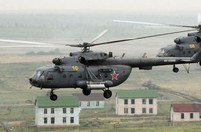 Helicopters, tanks seen during China-Russia joint drill
Helicopters, tanks seen during China-Russia joint drill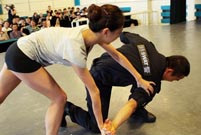 SWAT members in Shenyang offer fast defense training class
SWAT members in Shenyang offer fast defense training class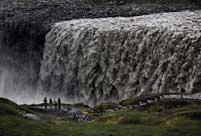 Dettifoss: Europe's most powerful waterfall
Dettifoss: Europe's most powerful waterfall 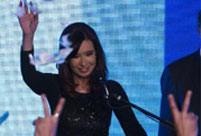 Argentina's president voices support of ruling party
Argentina's president voices support of ruling party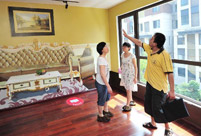 3D painting, new way to promote apartment sale
3D painting, new way to promote apartment sale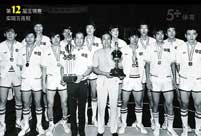 Review: Asian Men's Basketball Championship
Review: Asian Men's Basketball Championship Air Force's combat group conducts flight training in joint drills
Air Force's combat group conducts flight training in joint drills Lightning causes fire in refinery in Venezuela
Lightning causes fire in refinery in Venezuela Yunnan Wild Animals Park opens to public
Yunnan Wild Animals Park opens to public Top 10 most dangerous jobs in the world
Top 10 most dangerous jobs in the world Geomancy city Ganzhou
Geomancy city Ganzhou 3 Chinese athletes advance to final of Women's Shot Put
3 Chinese athletes advance to final of Women's Shot PutDay|Week|Month